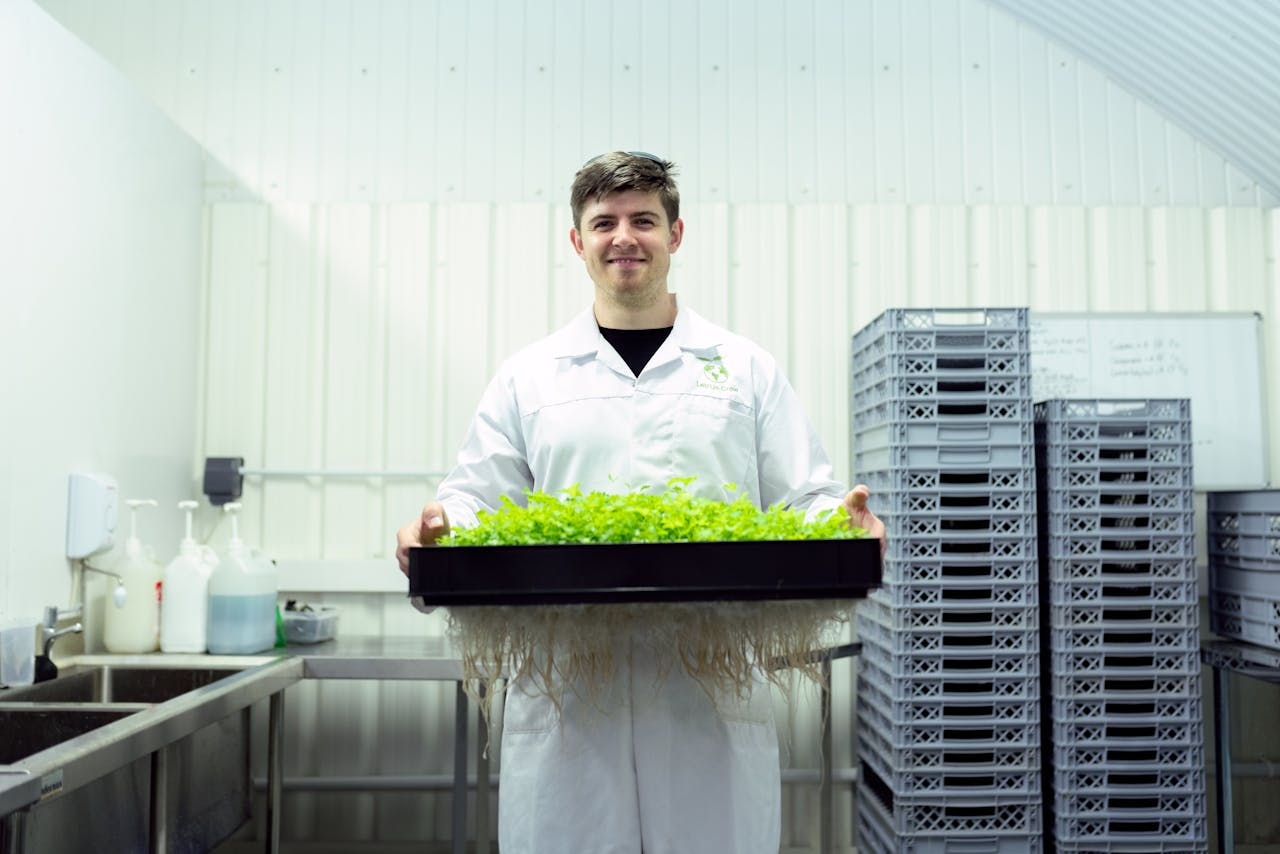
Biotechnology’s Impact on Environmental Conservation: A Deep Dive into 2024 Innovations-As the world grapples with the pressing challenges of climate change, biodiversity loss, and resource depletion, biotechnology has emerged as a vital ally in the fight for environmental conservation. In 2024, innovative biotechnological solutions are paving the way for more sustainable practices across various sectors, from agriculture to waste management. Let’s explore how biotechnology is making a significant impact on environmental conservation and what exciting developments we can expect this year.
Understanding Biotechnology and Its Environmental Role

Biotechnology involves the use of living organisms, cells, and biological systems to develop products and processes that improve human life and the environment. In the context of environmental conservation, biotechnology offers tools and techniques to mitigate the impact of human activities, restore ecosystems, and promote sustainable resource use.
From bioremediation to biofuels, the applications of biotechnology in environmental conservation are diverse and far-reaching. By harnessing the power of nature, we can develop innovative solutions to some of the most critical environmental issues we face today.
Bioremediation: Cleaning Up Our Ecosystems
One of the most promising applications of biotechnology in environmental conservation is bioremediation, the process of using living organisms to remove or neutralize contaminants from the environment. In 2024, advancements in this field are enabling more efficient and effective cleanup of polluted sites.
Microorganisms, such as bacteria and fungi, can naturally degrade pollutants like heavy metals, oil spills, and pesticides. Researchers are now using genetic engineering to enhance the capabilities of these microbes, making them even more effective in breaking down harmful substances. This innovation not only accelerates the remediation process but also reduces the need for chemical treatments, which can be harmful to the environment. (Read More: Artificial Intelligence Advancements: Driving the Future of Technology)
Sustainable Agriculture: Reducing Environmental Footprint

Agriculture is a significant contributor to environmental degradation, but biotechnology offers solutions to minimize this impact. In 2024, we see a growing trend towards sustainable agricultural practices that leverage biotechnological innovations.
For instance, genetically modified crops that are resistant to pests and diseases can reduce the need for chemical pesticides, leading to healthier ecosystems. Additionally, bioengineered plants that require less water or can thrive in saline conditions are becoming increasingly important in arid regions. By improving crop resilience and efficiency, biotechnology helps conserve resources and maintain biodiversity in agricultural landscapes.
Biofuels: A Cleaner Energy Alternative
As the world shifts towards renewable energy sources, biotechnology plays a crucial role in the production of biofuels. In 2024, advancements in microbial and algal biofuel production are gaining traction, offering sustainable alternatives to fossil fuels.
Microbes and algae can convert biomass into biofuels, providing a renewable energy source that reduces greenhouse gas emissions. Researchers are continually optimizing these processes, increasing the yield and efficiency of biofuel production. By transitioning to biofuels, we can significantly decrease our reliance on non-renewable resources and help mitigate climate change. (Read More: Artificial Intelligence and Machine Learning: Technology Transforming Our World)
Waste Management Innovations: Transforming Trash into Treasure
Waste management is a critical component of environmental conservation, and biotechnology is revolutionizing how we approach waste. In 2024, innovative biotechnological methods are being developed to transform waste into valuable resources.
For example, anaerobic digestion is a process that uses microorganisms to break down organic waste, producing biogas that can be used as an energy source. Additionally, researchers are exploring the potential of converting plastic waste into biodegradable materials through biotechnological processes. These innovations not only help reduce the volume of waste sent to landfills but also promote a circular economy by turning waste into useful products.
Conservation of Biodiversity: Protecting Endangered Species
Biotechnology also plays a role in the conservation of biodiversity, particularly in efforts to protect endangered species. In 2024, advancements in reproductive biotechnology, such as cloning and artificial insemination, are being utilized to support the survival of threatened species.
By using these techniques, conservationists can enhance genetic diversity and improve the chances of successful breeding programs. Furthermore, biotechnology is aiding in the development of disease-resistant strains of plants and animals, which is vital for preserving fragile ecosystems. These efforts contribute to the overall resilience of biodiversity and the health of ecosystems. (Read More: Tangren Technology Company Develops Several Artificial Intelligence (AI) Technologies)
The Future of Biotechnology in Environmental Conservation
As we move forward, the potential for biotechnology in environmental conservation is vast. Continued research and investment will be essential to unlock new applications and enhance existing technologies. In 2024, we can expect increased collaboration between scientists, policymakers, and industries to develop biotechnological solutions that address environmental challenges.
Moreover, public awareness and acceptance of biotechnological innovations will play a critical role in their success. Educating communities about the benefits of biotechnology in conservation can foster support for sustainable practices and encourage the adoption of these innovative solutions.
Conclusion article Biotechnology’s Impact on Environmental Conservation: A Deep Dive into 2024 Innovations
In conclusion, biotechnology is making a significant impact on environmental conservation in 2024, offering innovative solutions that address some of the most pressing ecological challenges. From bioremediation and sustainable agriculture to biofuels and waste management, the applications of biotechnology are diverse and transformative.
As we embrace these advancements, we have the opportunity to create a more sustainable future for our planet. By harnessing the power of biotechnology, we can work towards preserving our ecosystems, protecting biodiversity, and mitigating the effects of climate change. The journey is just beginning, and the possibilities for a greener, healthier world are truly exciting!

